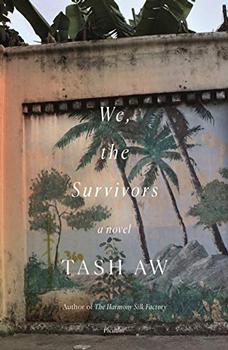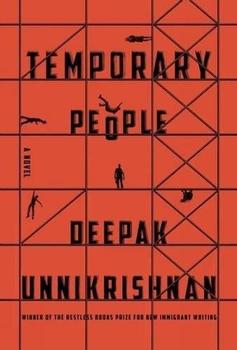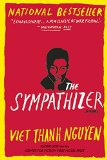Summary | Excerpt | Reviews | Beyond the book | Read-Alikes | Genres & Themes | Author Bio

We, The Survivors tells the story of Ah Hock, a Malaysian man recently released from prison where he served time for murdering a Bangladeshi migrant worker. This poignant, quietly moving story is not a mystery or thriller: the identity of the victim and the circumstances of the crime are established early on. Instead, Tash Aw uses this novel to create a bleak and textured portrait of working-class Malaysia.
The novel is told in the first person, as Ah Hock narrates his life story to a young research journalist, Su-Min, who comes to take notes on his case over a series of meetings. The relationship between Ah Hock (an older man, a laborer) and this young woman (a New Yorker, a queer radical feminist) is never the focus of the novel, but it's the narrative frame that holds the book together, as Ah Hock's self-consciousness of how Su-Min perceives him underscores all of their exchanges, and also helps bridge the gap between Ah Hock and the Western readers of this novel. In a conversation where Ah Hock describes killing a feral cat to put it out of its misery, the ordinarily warm but stoic Su-Min grows pale and distant. "[S]he cares more about the cat than she does about me," he muses, cognizant of the fact that the Western world has grown desensitized to the human suffering in developing societies. Still, the two form an understanding that accentuates the mostly grim plot with a thread of hopefulness.
The stories that Ah Hock tells Su-Min jump around in place and time; the narrative isn't linear, but it chronicles his life and centers on the act of violence that eventually landed him in prison. "People like us don't fight over love, we fight over houses, land, sometimes cars, mostly money—things that make a difference to the way we live," he tells Su-Min in an early exchange, when asked about motive. The story that follows is entirely devoid of romance – though there is a marriage; a practical one – and also of romanticization. The portrait that Aw paints of working-class Malaysian life is unrelentingly unpleasant; these stories are filled with illness, physical exhaustion and flooding houses, while all centering on the mutually destructive friendship between Ah Hock and a younger man, Keong, a drug dealer determined to escape from poverty.
If this book has one failing, it's the overly languid pace; this isn't a book that necessarily gets its hooks in the reader from the onset. Without much of a narrative to propel the story forward, it's easy to set it down and not feel compelled to pick it right back up. However, with its sharp social commentary and eventual emotional payoff, it rewards perseverance. How many of our actions are done of free will, and how many are determined by our upbringing? How can one succeed in a system stacked against them? And is there a true commonality to the human experience, or are we all divided more than united by our nations and social classes? These are the questions that Aw thoughtfully examines in We, The Survivors; though concrete answers remain, as always in the most multifaceted books, slightly outside our grasp.
![]() This review was originally published in The BookBrowse Review in September 2019, and has been updated for the
October 2020 edition.
Click here to go to this issue.
This review was originally published in The BookBrowse Review in September 2019, and has been updated for the
October 2020 edition.
Click here to go to this issue.

If you liked We, the Survivors, try these:

by Deepak Unnikrishnan
Published 2017
Until now, the humanitarian crisis of the so-called "guest workers" of the Gulf has barely been addressed in fiction. With his stunning, mind-altering debut novel Temporary People, Deepak Unnikrishnan delves into their histories, myths, struggles, and triumphs.

by Viet Thanh Nguyen
Published 2016
Winner of 2016 Pulitzer Prize for Fiction. A startling debut novel featuring one of the most remarkable narrators of recent fiction: a conflicted subversive and idealist working as a double agent in the aftermath of the Vietnam War
Happiness makes up in height for what it lacks in length.
Click Here to find out who said this, as well as discovering other famous literary quotes!
Your guide toexceptional books
BookBrowse seeks out and recommends the best in contemporary fiction and nonfiction—books that not only engage and entertain but also deepen our understanding of ourselves and the world around us.